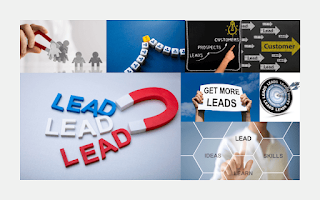SEO vs. SMM: What's the Difference in Lead Generation?
For a digital marketing company like Digiworq, understanding the nuances between Search Engine Optimization (SEO) and Social Media Marketing (SMM) in lead generation is crucial. Both are powerful tools, but they operate differently and yield distinct results. This blog post will explore the key differences, advantages, and disadvantages of SEO and SMM for lead generation.
What is SEO Lead Generation?
SEO is the process of optimizing your website to rank higher in search engine results pages (SERPs). When users search for terms related to your business, a well-optimized website appears prominently, driving organic traffic. This traffic consists of potential leads actively seeking the solutions or products you offer.
Direct Approach: SEO lead generation directly targets users with transactional keywords, reflecting a clear intent to purchase or inquire. For example, someone searching for "best digital marketing services" is actively looking for a provider.
How SEO Generates Leads:
Keyword Targeting: SEO involves identifying and targeting specific keywords that your potential customers are searching for. By optimizing your content around these keywords, you increase your chances of appearing in relevant search results.
Content Marketing: Creating valuable and informative content that addresses your audience's needs is a cornerstone of SEO. This content attracts visitors to your site and establishes your expertise.
Link Building: Acquiring backlinks from other reputable websites signals to search engines that your site is trustworthy and authoritative, boosting your rankings.
Local SEO: For businesses targeting a local audience, local SEO practices like optimizing your Google My Business listing and focusing on geo-specific keywords can drive local leads.
Website Audits: Regular auditing helps determine which pages perform well and which need improvement, with tools like Google Search Console or SEMrush.
Website Optimization: Optimizing website loading times and ensuring mobile responsiveness are key factors.
Analyzing Target Audience: Researching and understanding the target audience is the first step in SEO lead generation.
What is SMM Lead Generation?
Social Media Marketing (SMM) involves using social media platforms to build brand awareness, engage with your audience, and drive traffic to your website. SMM can generate leads by creating a community, sharing valuable content, and running targeted ad campaigns.
Indirect Approach: SMM often takes an indirect approach, nurturing relationships with potential customers and guiding them through the sales funnel.
How SMM Generates Leads:
Brand Awareness: SMM helps build brand recognition and establishes your company as a thought leader in your industry.
Engagement: Interacting with your audience through comments, messages, and polls fosters a sense of community and encourages engagement.
Content Sharing: Sharing blog posts, articles, videos, and other content on social media platforms drives traffic to your website.
Social Media Lure Campaigns: Running social media lure campaigns can be effective for generating initial customers.
Paid Advertising: Platforms like Facebook, Instagram, and LinkedIn offer powerful advertising tools to target specific demographics and interests.
Advantages and Disadvantages
SEO Advantages:
High-Quality Leads: SEO attracts users actively searching for your products or services, resulting in higher conversion rates.
Long-Term Results: Once you achieve high rankings, you can enjoy a steady stream of organic traffic for months or even years.
Cost-Effective: While SEO requires an initial investment of time and resources, it can be more cost-effective than paid advertising in the long run.
SEO Disadvantages:
Time-Consuming: SEO takes time to show results. It can take months to see significant improvements in your rankings.
Algorithm Changes: Search engine algorithms are constantly evolving, requiring you to adapt your SEO strategies accordingly.
Competitive: Ranking high in search results can be challenging, especially in competitive industries.
SMM Advantages:
Brand Building: SMM helps you build a strong brand presence and connect with your audience on a personal level.
Targeted Advertising: Social media platforms offer precise targeting options, allowing you to reach specific demographics and interests.
Immediate Results: Paid social media campaigns can generate leads quickly.
SMM Disadvantages:
Low Organic Reach: Organic reach on social media platforms has declined, making it harder to reach your audience without paid advertising.
Time-Consuming: Building a strong social media presence and engaging with your audience requires consistent effort.
Can Be Expensive: Paid social media advertising can be costly, especially in competitive industries.
Conclusion
Both SEO and SMM are valuable tools for lead generation, but they serve different purposes. SEO is ideal for attracting high-quality leads actively searching for your products or services, while SMM is best for building brand awareness and engaging with your audience.
For Digiworq, a comprehensive digital marketing strategy should incorporate both SEO and SMM to maximize lead generation efforts. By understanding the strengths and weaknesses of each approach, you can create a synergistic strategy that drives results and achieves your business goals. Referral programs and Chatbots can further increase lead generation.




Comments
Post a Comment